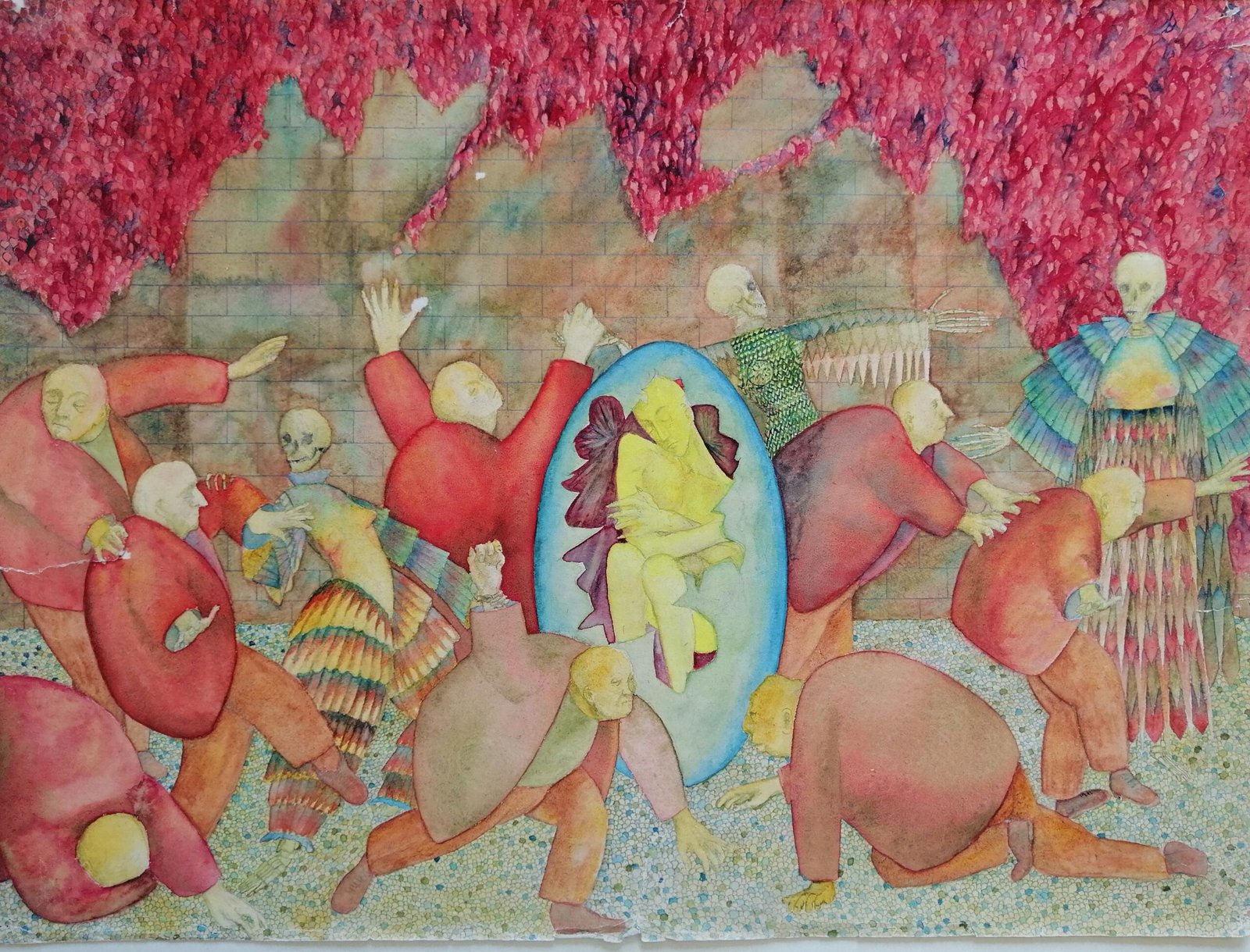I open my blog with a piece of writing I sent recently to the Guardian and to Russell Brand whose article was about the recent riots in UK.
Dear Russell,
I want to thank you for your article in the Guardian. I was surprised to find how much we shared as agewise I could be your granddad and weltanschauungwise I thought we were at opposite ends of the spectrum.
 (I wasn’t impressed by either party in your spat with the BBC.) Your Gandhi quote (“Be the change you want to see in the world.”) is apropos but it is a pity that you put it at the end of the article instead of at the beginning. Then you could have got into the meaty stuff of walking-the-talk. Our society has some good ideas about how to break up communities and has acted accordingly but nobody has yet got a Nobel prize for showing us how to put them together. You rightly put side by side the looters and the bankers etc. as kith and kin. There seems to be a slight difference, however. The first are clearly mindless (everyone seems to think so). No-one, so far, has called the bankers mindless. You have to have a well-trained mind to handle derivatives and hedge funds and that kind of thing. If the looters had been trained in burglary or arson we might have more respect for them. (recall the Great Train robbers) But they are mindless, have no minds! Minds are formed, shaped by culture and the environment of people. Bankers’ minds and looters’ minds in this respect are all the same. Neil Postman’s book ‘the End of Education’ foresaw it all. Society has lost the plot. The pundits keep reminding us that humans are animals with a few special tweaks on the genetic set-up and we know animals are into the survival of the fittest. After all the empty talk of education, education, education it comes down to this. We have lost the end, the aim, the purpose. We train for jobs, to serve the needs of the consumers and that’s it. If you can’t get a job then consume as best you can. This is and has been the small print of our educational programmes for some time.
(I wasn’t impressed by either party in your spat with the BBC.) Your Gandhi quote (“Be the change you want to see in the world.”) is apropos but it is a pity that you put it at the end of the article instead of at the beginning. Then you could have got into the meaty stuff of walking-the-talk. Our society has some good ideas about how to break up communities and has acted accordingly but nobody has yet got a Nobel prize for showing us how to put them together. You rightly put side by side the looters and the bankers etc. as kith and kin. There seems to be a slight difference, however. The first are clearly mindless (everyone seems to think so). No-one, so far, has called the bankers mindless. You have to have a well-trained mind to handle derivatives and hedge funds and that kind of thing. If the looters had been trained in burglary or arson we might have more respect for them. (recall the Great Train robbers) But they are mindless, have no minds! Minds are formed, shaped by culture and the environment of people. Bankers’ minds and looters’ minds in this respect are all the same. Neil Postman’s book ‘the End of Education’ foresaw it all. Society has lost the plot. The pundits keep reminding us that humans are animals with a few special tweaks on the genetic set-up and we know animals are into the survival of the fittest. After all the empty talk of education, education, education it comes down to this. We have lost the end, the aim, the purpose. We train for jobs, to serve the needs of the consumers and that’s it. If you can’t get a job then consume as best you can. This is and has been the small print of our educational programmes for some time.
You say it’s not a political problem but a spiritual one. Fine, so what are the spiritual problems for animals? The nub is here. Let us speak it so that the looter and the banker can hear it.

I used to think it was simple. If Bob Diamond, for example decided to forego his millions for say 200K what a fire that would make, a fire in the mind instead of in Hackney. Let us suppose he is a nice family man who pays his taxes and helps his friends. And if not him, some other overpaid cat. What stops just one of them doing that? Maybe we are all too embedded in the opinions of associates, the ambition of a wife or a false love of kids or just in the sheer niceness of having far too much that broadcasts our success and stops us looking inward. Being embedded in the habits of our milieu is a social strait-jacket that arrests any free movement. Much of what we call our values is just the stitching in the jacket. The solution is spiritual, you rightly say, not political. Certainly not the political which is mainly business management that only looks at human rights questions, the true object of politics, if they don’t undermine the corporate instinct.
Money is involved in the spiritual. It is a social product to facilitate the exchange of goods and services and provide capital for future enterprises and wealth creation. Like blood it has to flow through the entire social corpus. Blocked arteries mean big problems. When the money system throws people out of valid employment, makes families homeless and destroys industries it is destroying real wealth and needs to be changed. But the strait-jacketing of our thinking gets in the way.
Thinking freed from the strait-jacket is a spiritual act. It needs discipline, openness and a high level of attentiveness. Then we begin to walk the talk.
Again thanks for your article. There will probably be more fires in the cities. Meanwhile we have to light more fires in the minds. Keep thinking.
Greetings,
John Thomson.
The two paintings I have put here are a very early one and one more recent. My take-off point is generally some notion that has come to me. I begin not quite knowing where I am going and have to find my way to express the notion which may now be considerably modified. Sometimes a picture seems to tell a story but I am not illustrating a story. I remain in the pictorial so it avoids a literal translation.

